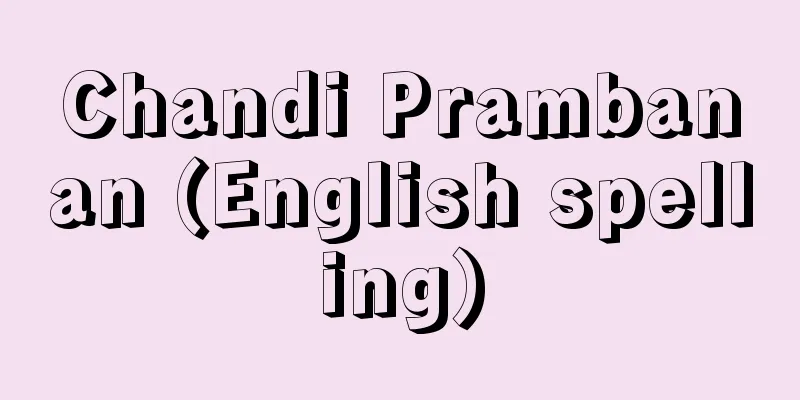Listen to it -

|
Chinese poet and scholar. His real name was Yi Duo (Ekita) and Mata Jiahua (Kaka), but he later changed his name to Duo. Yi Duo was his pen name. He was from Huishui County, Hubei Province. While studying at the Tsinghua School in Beijing (later Tsinghua University), he encountered the May Fourth Movement, which awakened him to new culture and he began to compose new poetry. After graduating in 1922, he went to America to study painting, but showed a strong interest in modern Western literature, especially English poetry, and was inspired by his ethnic consciousness, which led him to decide to pursue literature. After returning to China in 1925, he published poems and poetic theories in the magazine Shingetsu with Xu Zhimo and others, and advocated grammatical poetry. However, after graduating from Wuhan University and Qingdao University, he became a professor of Chinese literature at his alma mater, Tsinghua University, in 1932, where he devoted himself to the study of classics such as Tang poetry, the Book of Songs, and the Citation of Chu, achieving outstanding results. His academic style was based on the tradition of empirical historical research, but he also incorporated new methods in literary research, folklore, and mythology, opening up a new dimension in classical studies. During the Second Sino-Japanese War, he transferred to Southwestern United University in Kunming, Yunnan Province, where he was active in the democratic movement alongside his academic studies, but was assassinated by a special agent of the Kuomintang. His poetry collections include "Red Candle" (1923) and "Dead Water" (1928), and his classical studies include "Yilin Qiongzhi" (1939), "Yefu Shisen" (1940), "Corrected Supplement to Chuci" (1941), and "New Interpretation of the Book of Songs" (1945). His major writings are collected in four volumes of "Wen Yiduo Complete Works" (1948). [Tamotsu Sato March 18, 2016] "Mikada Makoto's 'Mon'ita Hyōden' (included in 'Fu to the Rakujin', 1966, Musashino Shoin/Kodansha Academic Library)" [Reference item] | |Source: Shogakukan Encyclopedia Nipponica About Encyclopedia Nipponica Information | Legend |
|
中国の詩人、学者。本名は亦多(えきた)また家驊(かか)、のち多と改名。一多は筆名。湖北省浠水(きすい)県の人。北京(ペキン)清華学校(後の清華大学)在学中に五・四運動に遭遇して新文化に目覚め、新詩の創作を始めた。1922年に卒業後、絵画を学ぶためにアメリカに留学したが、西洋の近代文学、とくに英詩に強い関心を示し、また民族的自覚を喚起されて、文学への進路を定めた。1925年に帰国後、徐志摩(じょしま)らと雑誌『新月(しんげつ)』に拠(よ)り、詩や詩論を発表、格律詩を提唱した。しかし、武漢大学、青島(チンタオ)大学などを経て、1932年母校の清華大学中国文学科教授に就任後は、もっぱら唐詩や『詩経』『楚辞(そじ)』などの古典研究に没頭し、優れた業績をあげた。その学風は、実証的な考証学の伝統を基礎に、新しい文学研究や民俗学、神話学などの方法を取り入れ、古典研究に新局面を開いた。日中戦争中、雲南省昆明(こんめい)の西南聯合(れんごう)大学に移り、学問研究のかたわら民主運動に活躍したが、国民党の特務に暗殺された。詩集に『紅燭(こうしょく)』(1923)、『死水(しすい)』(1928)があり、古典研究に『易林瓊枝(えきりんけいし)』(1939)、『楽府詩箋(がふしせん)』(1940)、『楚辞校補』(1941)、『詩経新義』(1945)などがある。『聞一多全集』4冊(1948)に主要な著述を収める。 [佐藤 保 2016年3月18日] 『目加田誠著『聞一多評伝』(『洛神の賦』所収・1966・武蔵野書院/講談社学術文庫)』 [参照項目] | |出典 小学館 日本大百科全書(ニッポニカ)日本大百科全書(ニッポニカ)について 情報 | 凡例 |
Recommend
Okuue Police Judgment - Okuue Police Judgment
… The latter, unwritten decrees were generally is...
Interpretive Sociology
...It is not surprising that this research approa...
Arima Cat - Arima Cat
...is a type of ghost story film unique to Japan,...
Zangetsu - Zangetsu
[1] [noun] The moon that remains in the sky until ...
Ship radio communication
Radio communication on ships is utilized as the on...
Gozzoli - Gozzoli (English spelling)
A painter of the early Italian Renaissance. His r...
Spider plant - Orizururanzoku
...The most commonly cultivated species are the v...
Wisby Sea Law - Wisby Sea Law
…Later, in the Middle Ages, maritime law develope...
Glass Lining
To give corrosion resistance to metal surfaces by ...
Wilkins, C.
…In 1783, the British judge W. Jones (1746-94) wa...
Monte Rosa (mountain) (English spelling)
The main peak of the Pennine Alps, towering over t...
Odate Jōkō Diary - Odate Jōkō Diary
The diary of Odate Hisauji (Buddhist name Tsuneok...
Gas injection method - Gas injection method
This method is used as a type of underground natur...
Sea invasion
...the advance of the coastline toward the land d...
Toyomichi Harumi - Bundou Shunkai
A calligrapher of the Taisho and Showa periods. B...







![Karakoram [mountain range] - Karakoram](/upload/images/67cb417219569.webp)

